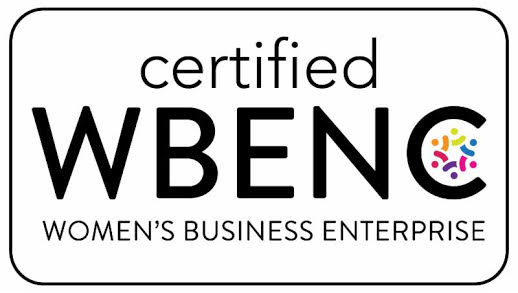Have you ever considered starting your own consulting business? Truthfully, I never did. I certainly fantasized about having my own business where all the decisions were mine, but that was usually out of frustration with the “decision-making process” in a big firm. Everything took so long! I spent 20 years pushing for change and then finally realized in order to really effect change, I had to be in a different place in the decision-making chain. That could only mean one thing – be THE boss.
Even though I spent the majority of my career running a department (a business within a business) and giving advice to others about growing their businesses, I had never really run my own business. The experience of running a department or division within an organization was great experience, but the reality is VERY different from starting and running your own shop. In an existing organization, the pens and notebooks are just there. The laptop with email and office products with access to the internet is just there. The phones and printers and ink are just there. The PEOPLE are just there. I didn’t have to write employees’ paychecks, deduct their taxes, or pay their benefits, for the pleasure of having them work with me. Well, starting a small business does include a hefty to-do list, which is probably why many never even attempt it. But it’s not as hard as you might think. Here are some tips.
1. Work with people you like and respect.
I can’t emphasize enough how important it is to have the kinds of people around that you like and respect providing motivation and support. I’m fortunate to be able to work alongside three partners that I love and respect. One of them was already running her own business – alone – which we leveraged to create our new organization. No matter what you are doing, you need others to help you get the word out, find resources, give you advice, and keep you sane. That network is critical because sometimes you just need to “phone a friend”.
2. Network, network, and network some more.
In my previous role there were administrative duties that kept me from spending more time with customers like hiring, evaluating, creating budgets, planning, attending seminars, meetings, etc., some of which I still do. Plus, over time in a new business, you’ll realize you need help with tax returns, invoicing, paying bills, keeping up certifications and business licenses, business taxes, etc. You’ll also have to schedule your own appointments and, if you travel, book your own flights/hotels/cars, and pay those bills. At some point in this process, as if you’re “starting a business” to-do list isn’t long enough, you’ll probably feel like you have to clone yourself. Needing another you is exciting, scary, and complicated. You have to find somebody else to help you get stuff done and, depending on the project, pay them before you get paid. Continuing to develop your network will help settle those needs as they arise.
3. Tools are important.
Finding, contracting, and negotiating with resources along with integrating them, all while you are trying to keep the work going and negotiating your next project is a challenge. Then the wheels start turning. How many more people do I need? Do I need to hire them, or can we subcontract? Enter the need for a good payroll solution. Now I need someone to not only send invoices but to receive them, hire people or put together contracts, get workers compensation, find a payroll and billing solution, and possibly borrow some money. Don’t let this step overwhelm you. People are amazing and if you find a few good people, they will jump in and get stuff done! That being said, having the right tools to help the process is a big step in making sure all the t’s are crossed and the i’s are dotted.
4. Take one day at a time.
With having so much on your plate, some days can be a little more overwhelming than others. What I learned from my mentor, Susan, is that you don’t have to solve every problem at the moment it arises – take it one day at a time. There can be a lot of pressure when you are on your own. Accepting a project and figuring out exactly how to source it are two different things. Digest the work and figure out how to accomplish it later.
5. Get started!
Something that will really make a difference is the starting point – how do you get started even if it’s just you or a couple of people? You can’t wait until you have everything in place to get going. You have to take calculated risks. And you have to find resources and other experts to help you get stuff done. With that deep network you’ve established, you’ll solve this problem quickly. You may not need business partners right away, but keep in mind there is a lot of overhead that gets added quickly. An organization of one is of course a little simpler, some upfront paperwork, a laptop, phone, and printer/scanner (or the appropriate tools for your trade) and you are off to the races! However, once you’ve established the need for other resources, staff, tools, etc. the to-do lists will grow, along with your business.
Another thing one normally has to consider is location. The virtual environment, enhanced by the pandemic, made the need for an office for a consulting business like ours a non-issue. But location is normally a consideration depending on what you are building.
All this is not meant to scare you away from trying your hand at going out on your own. Quite the opposite. But don’t underestimate the amount of planning that goes into starting something that requires resources, a location, and tools to get off the ground. That said, if Bill Gates and Paul Allen can start Microsoft in a garage, I figure one can do just about anything they set their mind to.
I didn’t always think about what the specific practices were for starting a business, I just did it. But reflecting back on what it is I did, here are the things that I found the most useful in helping me pull my feet out of the concrete and get started.
- Make a plan. Don’t spend months on it. Make the decision to do it, work on it until you get it done and start executing on it. That initial plan could be as simple as finding out what licenses (if any) you need to get started and find 1 to 2 projects to work on. Once you do that, make the next plan – how to get those 2 projects done. Check out MBO Partners. They were my go-to resource for consulting.
- Be prepared to spend some money you don’t think you have. You don’t have to get venture capital, but you might need a loan. A basic budget will be enough.
- Be open and listen to the customer’s problems. Don’t worry if you personally can’t help a customer solve the full problem. Finding resources to help you do it are an important part of the challenge and a way to build your business and support others. If you only look for projects that you can solve by yourself, you might be looking a while.
- Try different things and don’t lock yourself in. I’ve tried all sorts of tools and technologies to make us more knowledgeable and efficient. Keep the things that work and quickly get rid of the ones that don’t. You don’t yet have an endless budget!
- Always be identifying go-to sources that can help you with the things you don’t know how to do.
I don’t claim to be an expert at starting a business, but I’ve got stories and some things I know worked for me. Talk to others who have started their own businesses . Ask them what worked and what didn’t work so you can avoid the pitfalls sooner than they did. There are so many resources out there you just have to look for them.
Remember all businesses start small. Yours is no different.


